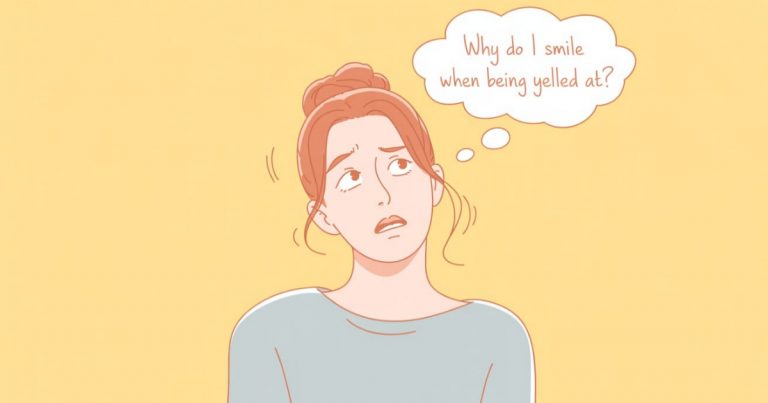Why Is It Good To Have Laughing? What Happens When You Can’t Stop Laughing?
Laughter is often referred to as the best medicine—and for good reason. It’s a natural, joyful response that can bring both physical and mental health benefits. But why is it good to have laughing and what happens when laughter goes beyond the occasional chuckle and becomes uncontrollable?
In this post, Grumpy Sharks will share with you why laughing is beneficial for your health and well-being, and dive into what can happen if you can’t stop laughing. Whether you’re looking for a mood boost or curious about the consequences of excessive laughter, this article will cover it all!
Why is it good to have laughing?
Laughter doesn’t just make us feel better emotionally; it also has significant physical benefits:
1. Reduces Stress and Anxiety
Laughter is a natural stress reliever. It helps to reduce the production of stress hormones, like cortisol, and promotes a sense of relaxation. When you laugh, your body releases endorphins, the feel-good chemicals that help improve mood and combat anxiety.
2. Strengthens the Immune System
A good laugh can boost your immune system. Studies have shown that laughter increases the production of antibodies and activates immune cells, making the body better equipped to fight off illnesses.
3. Improves Heart Health
Laughter isn’t just good for your mood—it’s good for your heart, too! It increases blood flow, improves blood vessel function, and helps lower the risk of cardiovascular diseases. In fact, some researchers believe that laughter could be as beneficial as exercise for heart health.
4. Reduces Physical Pain
Laughter has been shown to increase pain tolerance by releasing endorphins, which are natural painkillers. This can help alleviate discomfort, whether it’s from minor aches or chronic pain. As Dr. Robert Bonakdar explains, laughter can improve your pain threshold, even when you’re feeling down
5. Boosts Mental Health
Laughter helps to reduce feelings of depression and anxiety. By increasing the production of endorphins and other neurotransmitters, laughter can uplift your mood, reduce stress, and improve your overall mental health.
6. Enhances Social Connections
Laughter is a social activity. It helps build connections and strengthens relationships. Sharing a laugh with friends, family, or colleagues can improve communication and cooperation, making interactions more enjoyable and less stressful.
What Happens When You Can’t Stop Laughing?
While laughter is generally beneficial, there are rare occasions when uncontrollable laughter may indicate underlying health conditions. Two conditions that can cause excessive laughter are pseudobulbar affect (PBA) and gelastic seizures:
1. Pseudobulbar Affect (PBA)
PBA is a condition where individuals experience uncontrollable laughing or crying, often triggered by emotions or sometimes without any emotional cause. It is typically associated with neurological conditions such as Alzheimer’s disease, stroke, or traumatic brain injury. Those affected by PBA may have difficulty controlling their emotional expressions.
2. Gelastic Seizures
Gelastic seizures are a rare form of seizure that causes uncontrollable laughter, typically due to neurological issues like brain tumors. This form of laughter is often not linked to happiness or joy but is a symptom of a medical condition.
Medical Causes of Uncontrollable Laughter
There are certain medical conditions that can trigger uncontrollable laughter:
Neurological Disorders: Conditions like Parkinson’s disease, multiple sclerosis (MS), or brain injuries can disrupt the brain’s ability to regulate emotional responses, leading to spontaneous laughter.
Psychiatric Disorders: Gelastic seizures, as mentioned above, are linked to neurological conditions but can also stem from mania or severe anxiety. In these cases, the excessive laughter may occur during manic episodes or anxiety attacks, contributing to emotional distress and social challenges.
Medication Side Effects: Some medications, particularly those that affect the brain’s chemistry, can lead to unusual laughter as a side effect. Drugs used to treat conditions like depression or seizures might trigger episodes of inappropriate laughter in some individuals.
Is Uncontrollable Laughter Harmful?
In most cases, laughing is harmless and beneficial. However, if you experience uncontrollable laughter often, it could be a sign of an underlying medical or psychological condition. While occasional laughter is a healthy response, if it begins to interfere with your life, it’s important to consult with a healthcare professional. Pathological laughter may require treatment, particularly if it’s related to a neurological or psychiatric issue.
Conclusion: Why is it good to have laughing?
Laughter is a natural, powerful force that has numerous benefits for both the mind and body. From reducing stress and anxiety to boosting heart health and immunity, it’s clear that laughter is good for us. However, if you find yourself laughing uncontrollably, it’s important to pay attention to the underlying causes. While laughter is often a joyful experience, excessive or uncontrollable laughter may be a sign of a medical condition that requires attention. So, the next time you laugh, remember: it’s good for you, but moderation is key!
Sources:
- Mayo Clinic. (n.d.). Stress relief from laughter? It’s no joke. Mayo Clinic
- Verywell Mind. (2021). The Health Benefits of Humor and Laughter. Verywell Mind
- Healthline. (2020). Gelastic Seizures: What You Need to Know. Healthline











